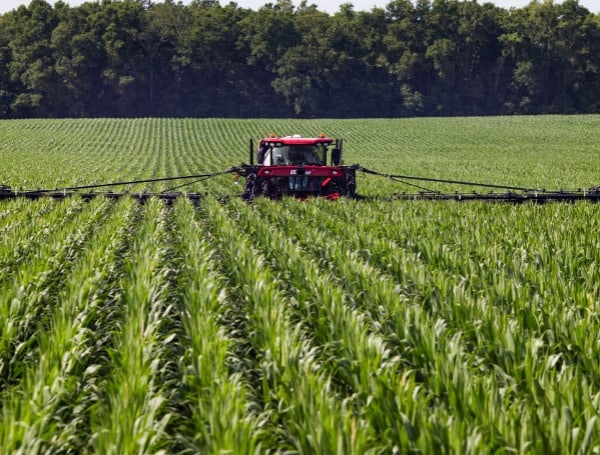As trade tensions between the United States and China continue to escalate, the Trump administration is actively preparing for the possibility of another financial bailout for American farmers. Agriculture Secretary Brooke Rollins confirmed the administration’s readiness to support agricultural producers facing losses due to the ongoing trade dispute.
During an interview on CNN’s “State of the Union,” Rollins emphasized that while the administration remains hopeful a bailout won’t be necessary, they are taking proactive measures. “We are watching it and analyzing it every single day,” Rollins stated, adding that they are maintaining close communication with lawmakers on Capitol Hill to secure necessary funding should the trade war further impact agricultural exports.
READ: “No More Handcuffs”: Trump Order Aims To Empower Local Police
The specter of a potential bailout echoes the 2018 scenario, where the Trump administration rolled out a $28 billion aid package to mitigate the effects of retaliatory tariffs imposed by China. This previous bailout provided crucial financial relief to producers of key commodities like soybeans and pork.
However, the farming community appears divided on the necessity of another bailout. Barry Evans, a sorghum and cotton farmer from Texas, expressed a dire need for government intervention. “We hope there will be a bailout,” Evans told the Wall Street Journal. “If we don’t get something, it will be quite a disaster.” He highlighted that nearly 90% of sorghum exports were destined for China last year, making the sector particularly vulnerable.
READ: Trump Signs Executive Order Enforcing English Proficiency For Truck Drivers
Conversely, Josh Gackle, chairman of the American Soybean Association, articulated a preference for market access over government aid.
“Soybean farmers want access to a free and fair trade market,” Gackle stated, while acknowledging the financial strain caused by tariffs. He added that he hopes the Trump administration “can find a way to address that financial impact on our farms” from tariffs. Soybean sales have seen a significant decrease this year.
In a separate development, Rollins delivered some positive news for consumers, announcing a substantial drop in wholesale egg prices.
“The actual wholesale cost of eggs is down, and the retail cost will soon follow,” she said, noting a 58% decrease in wholesale egg prices over the past six weeks. This price reduction is expected to translate to lower prices for consumers at grocery stores in the near future.
Please make a small donation to the Tampa Free Press to help sustain independent journalism. Your contribution enables us to continue delivering high-quality, local, and national news coverage.
Connect with us: Follow the Tampa Free Press on Facebook and Twitter for breaking news and updates.
Sign up: Subscribe to our free newsletter for a curated selection of top stories delivered straight to your inbox.
